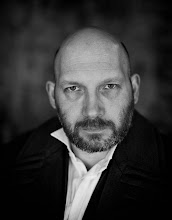
Those who know me are probably aware that I am something of a confirmed and committed bibliophile. Reading is, quite simply, one of my favourite things and I regard books as almost sacred objects.
However, last week I finally cracked - gave in to the pressures of the modern world, if you will - and bought myself a Kindle. Yes, you read that correctly, I bought a Kindle.
And I have to say that it is a wonderful toy.
My reasons were rather pragmatic, truth to tell. I've never been happy reading books on a computer screen, (short stories are fine although I've always had a tendancy to print them out and read them at my leisure) but over the past few years I have amassed a rather large collection of ebooks, gleaned from various places (God Bless You, Project Gutenberg, Manybooks, and Black Mask, among others).
Now, thanks to the Kindle I can read them in comfort, take them with me wherever I go and generally enjoy them without the hassle of the computer, eye-strain and things of that nature.
I was sceptical at first and still believe that the ebook reader will never fully replace the printed word, but given the vast amout of books available in electronic format, it's been a good investment so far.
It has even got me thinking about producing an e-collection of my own - it's relatively easy to do given the right software (Calibre is a good 'un) and has helped bring me out of one of my occasional periods of creative lethargy.
So, stay tuned - the plan is to put a collection together in the next couple of months (probably of my Shining Cities stories as soon as the rights of a couple of them revert to me) and see where things go from there.
Will this stop me from buying printed books? Er, no (see the whole bibliophile comment above)
And, besides, I reckon it's about time I joined the 21st century (albeit in a small way).





